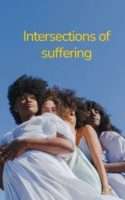As women in feminism, we connect over our frustrations with patriarchy and how we got here as a country. As a woman of colour, conversations around feminism and sexism with white women, does nothing for me because we live completely different lives. Through an article by Aamna Mohdin for the Guardian, I realised that this is called intersectionality which was coined by Kimberlé Crenshaw, who is now one of the most influential black feminist.
What is intersectionality?
Intersectionality is the idea that different forms of discrimination – such as sexism and racism can overlap. Crenshaw highlights that feminism has failed to “analyse that race was playing a role in making some women vulnerable to heightened patterns of sexual abuse. And it was also the case that anti-racism wasn’t very good at dealing with that issue either.”
“Feminism is a fight against sexism but who, what and how are we really fighting sexism againt women? As much as women all experience sexism, not all women experience racism. In this article I am unpacking some of the nuances people tend to overlook when it comes to movements like feminism, so that we can start having the tough conversations we don’t talk about.
What is a feminist?
I first heard about feminism when Beyonce released her song “Flawless” in 2013 and declared that she was a feminist. Before then I had no idea what that was and what it meant. A feminist in simple terms is a person who supports women culturally, politically, environmentally, socially – and anything allied.
White feminism – misguided or exploitative?
An article by Marie Solis for NBC News describes white feminism as an ideology that can be traced throughout the history of the feminist movement in the United States, including the savvy female executives who use feminism as a marketing strategy. According to Koa Beck, journalist and author of the book White Feminism, the ideology and strategy of white feminism “focuses more on individual accumulation, capital and individuality”.
They do that by preaching the importance of individual success and equality as something women can achieve primarily through careerist endeavours. Solis says that the goal of white feminism is not to change the systems that oppress women (patriarchy, capitalism, imperialism) but to succeed within them. Doesn’t then the idea of feminism in that context lose meaning to POC (people of colour, in this instance, women)? Women of colour suffer the most within these systems, and to advise them to aim to succeed within them, overlooks all their current struggles, most markedly with sexism and racism.
Sexism and racism in SA for women of colour
White feminism comes from white privilege which is a birth child of racism. White privilege has made sure that even with democracy the systems within society will always benefit white people. Who benefits from that? White women. Who doesn’t? Women of colour. When we call for equality, we usually pick the pay gap struggle as something we seek equality on but who is that pay gap mainly for? Are black women, Indian women, coloured women, mixed women, and Asian women getting the same treatment in jobs as white women? No. Are they treated the same in society? No.
In a conversation, a friend who worked for a construction company, which is a heavily male dominated space shared her experience. She said she experienced, “Sexism on site, mostly by site production workers. Snarky sexual comments like: ‘I want you; I will get you pregnant’” etc. They would stalk me on social media and discuss it on Monday morning. Racism I experienced mostly in the office. I was treated differently than another colleague who wasn’t black. I even bought my colleagues chocolate and they didn’t eat it.”
In a conversation with another mutual, she acknowledged not only the sexism experienced by women of colour but also how, “Racism and sexism can be experienced at the same time. They can coexist in some instances, but not always. Because sexism doesn’t affect cisheterosexual men but racism does. A black woman or other woman of colour can experience both racism and sexism at the same time. This is often the case in male dominated industries such as sport, engineering, etc. Of course, the same can be said in social settings as the society is designed to cater to men through the systems of patriarchy and misogyny. So, while cishetero-men (someone whose internal sense of gender corresponds with the sex the person had or was identified as having at birth) benefit from male privilege, they can experience racism in settings where black people or people of colour are unwelcome.”
Not a blaming, but calling for accountability…
This article is not blaming white women for a world that was essentially created by men, but to even start having conversations about racism and sexism in South Africa we would need to look at all the factors that make these systems thrive. Accountability is not only educating yourself to be woke about what is happening in the world, but to consciously look at what role you might be playing and what you can do to make a change. That takes extreme self-reflection.
Let’s be real; black women have never been able to be women; they are the ‘imbokodos’ that are strong till the end of time. Things like ‘Karens’ and ‘white women tears’ exist because only white women have always been allowed to be vulnerable; only now is the world seeing how toxic that has been to other women.
Tell us: As a woman of colour, does the article describe your world?
If you enjoyed reading this, you may also like… Miss independent



